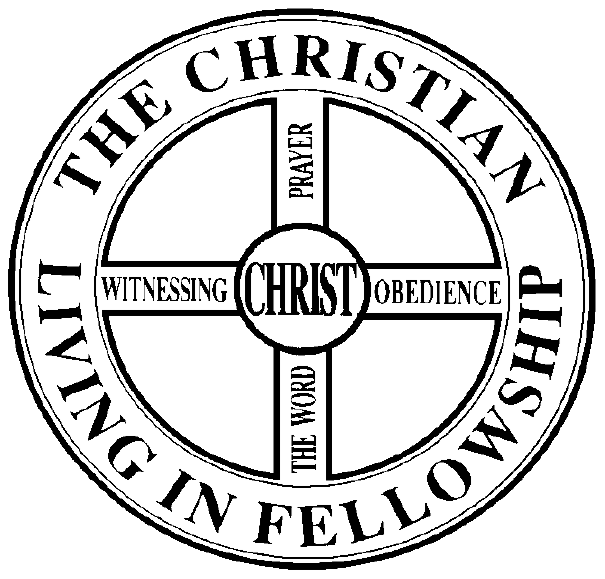
Our Christward Relationship: Prayer

Our God is a living and active God. He delights to converse with His children! But have you noticed in your relationship with people that for both to feel closer to the other, the conversation must go both ways? Our relationship with God is no different
As we saw last month, we listen to God and learn more about Him through His Word, recorded as our Bible. The other side of that conversation is our words to Him, which we commonly call "prayer." So the vertical spokes of the Wheel Illustration (The Word and Prayer) describe our two-way conversational relationship with God!
Prayer, Our Hearts Poured Out
As I tell my students, "prayer" is just a special word that means "talking with God." We cannot see God, but He is just as real as any person we meet. And He desires to have fellowship with us—from beginning to end, the Bible is the story of God's desire to dwell among us and be our God and we His people, ultimately accomplished through the death and resurrection of Jesus! And fellowship is more than just sitting and listening to someone else talk; it is interacting with that person both in conversation and in living out life.
Prayer is far more than making a to-do list for God or following formulaic prayer structures. It is growing in our understanding of the reality and personal-ness of God! There is no magic in it, beyond the wonder that the Creator of the universe stops to listen and respond to so small a creature as me!
As challenges arise in our lives, or as we meet obstacles in seeking to live out God's instructions, we naturally turn to someone else for help, advice, comfort or assurance. God wants to be that Person for you! He is as real as the friend you grew up with, but far more powerful. He is the perfect loving Father, with whom we can share any thought—and who can fix any problem!
The Book of Psalms is more than just a collection of Hebrew poetry and songs. It is filled with real prayers of real people who experienced terrible defeat and discouragement, who turned to God with their anger and helplessness, and found Him to be all-sufficient and able to deliver from every trial. Their joy overflowed in psalms of praise to God for His power and deliverance.
God desires honest communication with us: He has revealed His whole heart to us through the Scriptures. He's not afraid of even our darkest thoughts, but is able to withstand and to bear our worst fears, fury and failures. Indeed, He already knows us inside and out (see Psalm 139)! There is nothing lurking in our hearts that He is not already fully aware of. He desires genuine communication with us. He wants to be our dearest and closest friend.
But it takes our opening up to Him, sharing our every thought and concern, need and joy with Him. As we do that, we'll find Him to be a better friend than we could have ever imagined.
So the next time you get alone to talk with God, don't pray like your composing a letter or email. Pray like you're talking with a good friend, without forgetting that He happens to be Lord of all creation. Share your prayer requests, talk about the things that concern you, your family, your community. Ask Him about things you've read in His Word, things you understand and things you don't. The better you know God (through reading His Word and walking in His ways), the clearer His voice will be when He answers.
A Caution
But beware the myriad of other thoughts and ideas in your heart. Not all are from God. The Spirit who inspired Scripture will speak in agreement with Scripture. "Jesus Christ is the same yesterday, today and forever" (Hebrews 13:8; see also Numbers 23:19). His Words and wishes do not change from generation to generation.
Jesus told His followers that His sheep know His voice and follow Him (John 10:1-5), but a sheep doesn't know its shepherd's voice as soon as it joins the flock. It learns its shepherd's voice by daily listening to him and following him, together with the other sheep who already know the shepherd's voice. And that reminds us of the importance of getting to know Jesus in community with others who already know Him well (Hebrews 10:24-25). They are a safeguard for us, just as we are to be for them.
Developing our own disciplines of Bible reading, obedience and prayer should never lead to giving up fellowship with other believers. They might lead us to change fellowships in search of more mature believers, but never breaking off all fellowship. That's the tactic of the enemy. Wolves seek to isolate a sheep or lamb from the rest of the flock, in order to devour it. Even when sending trained disciples out in ministry, Jesus sent them two-by-two (Luke 10:1). Not even Paul traveled and ministered alone.
We need the whole body, every member doing its part, in order to grow into the full maturity of the likeness of Christ (Ephesians 4:11-16).

